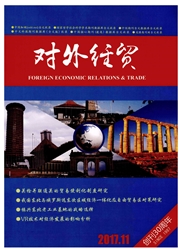

 中文摘要:
中文摘要:
以黑龙江省1978--2010年农业数据为样本,构建投入要素、制度变迁、政策支持与农业增长的计量模型,实证分析了土地、劳动力、化肥施用量、机械动力、用电量、灌溉量、财政农业支出、农业贷款、土地流转制度对农业发展的影响,得出以下结论:从投入要素角度分析,土地、用电量对农业增长的影响为正,劳动力、机械动力对农业增长的影响为负,灌溉量与农业增长无关;从政策支持角度分析,财政农业支出、农业贷款的增加都会带来农业增收;从制度角度分析,土地流转制度在黑龙江省实施的效果不明显,并不是所有的省份都适合推广这一政策。
 英文摘要:
英文摘要:
This article takes agriculture data in Heilongjiang Province from 1978 to 2010 as sample, builds econometric models of factor inputs, institutional changes, policy support and agricultural growth, and analyzes empirically the agricultural develop- ment' s impact of the lmld, labor, chemical fertilizer, mechanical power, electricity, irrigation, the amount of financial agri- cultural expenditure, the agricultural loans and land transfer system, which finds that from the perspective of factor inputs, land and electricity' s impact of agricultural growth is positive, labor and mechanical power' s impact of agricultural growth is nega- tive, the amount of irrigated cannot affects agricultural growth ; from the point of view of policy support, finance agricultural ex- penditure, increase agricultural lending will bring agricultural income, from the institutional point of view, the effect of land transfer system in Heitorlgiiang Province is not obvious, so some provinces are not suitable to promote this policy.
 同期刊论文项目
同期刊论文项目
 同项目期刊论文
同项目期刊论文
 期刊信息
期刊信息
